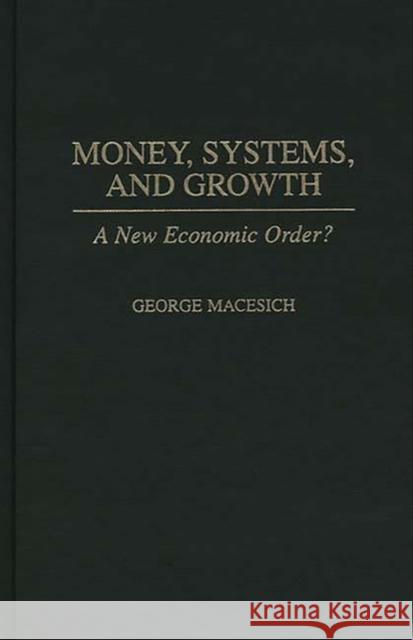Money, Systems, and Growth: A New Economic Order? » książka
Money, Systems, and Growth: A New Economic Order?
ISBN-13: 9780275961718 / Angielski / Twarda / 1999 / 128 str.
In the years since World War II, the United States and other countries have created a new economic order which has produced one of the broadest and most sustained periods of prosperity in world history. The essence of this new economic order is a system of rules to govern, facilitate, and promote trade in goods and services. The result is applauded by some and condemned by others. This study discusses the roles of money, systems, and growth in the emerging, new economic order.
Studying the roles of money, systems, and growth are important for gaining insight into the likely behavior of economies such as China's. A nation as large as China could undermine the ability of other countries to impose politically difficult economic disciplines. There is need for caution. The upheaval in Asia that is affecting the world's largest markets is a case in point. Failure to implement reforms consistent with the rules of the new economic order has pushed such countries as Albania, Romania, and Macedonia close to becoming Europe's hidden Third World. The power of monetary policy and economic growth to either facilitate or hinder a country's readiness to adopt the rules of the new economic order is underscored in this study.











